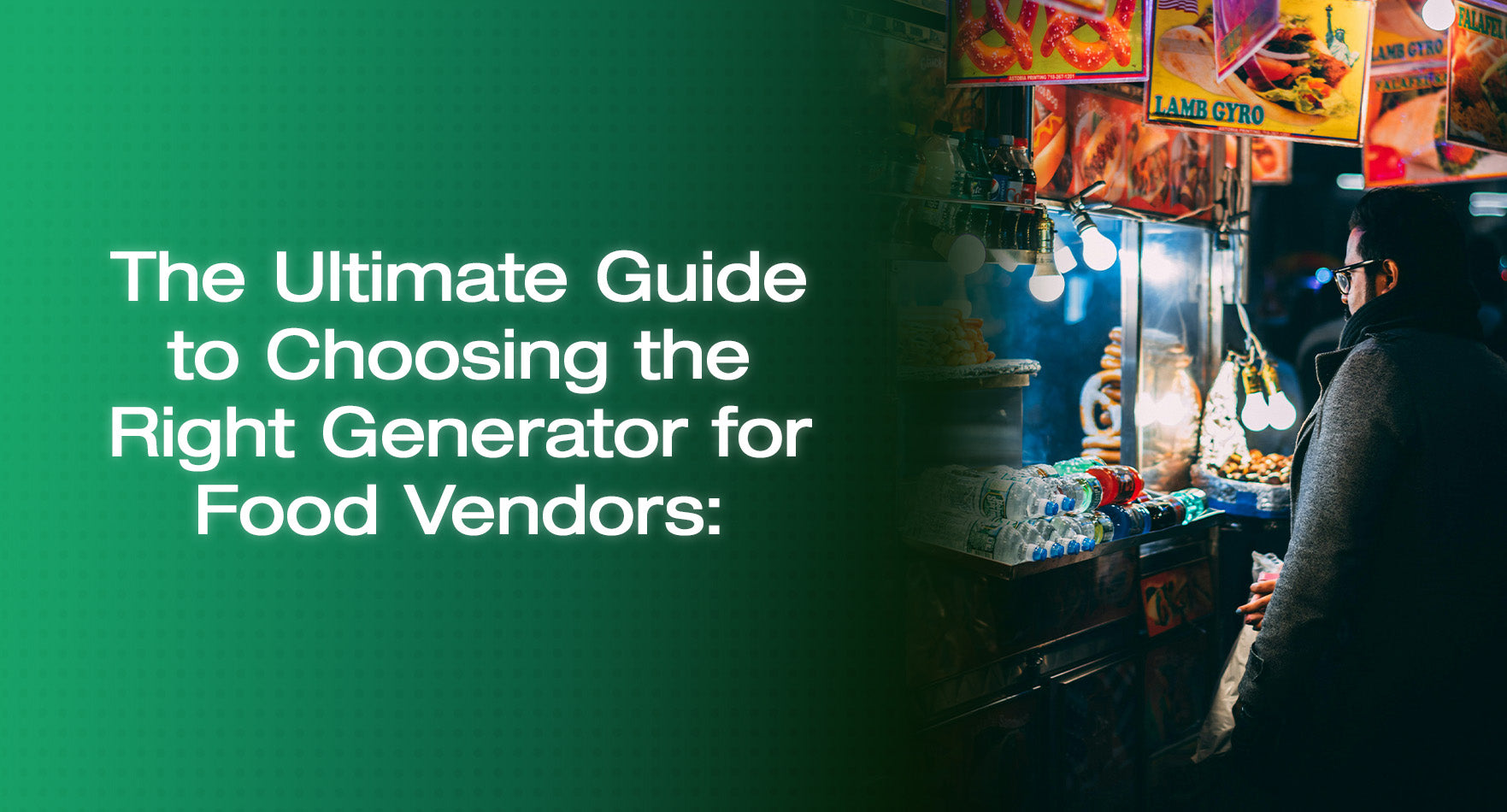Key Considerations
-
Power Requirements
- Assess Your Power Needs: Determine the total wattage of all your equipment, such as refrigerators, warming trays, lights, and cash registers.
- Surge vs. Running Wattage: Some devices need more power to start up (surge wattage) than to run continuously (running wattage). Ensure your generator can handle both.
-
Fuel Type
- Gasoline Generators: Commonly available and cost-effective, but can be noisy and require frequent refueling.
- Propane Generators: Cleaner burning and more efficient, but propane tanks need to be readily available.
- Diesel Generators: More efficient with longer runtimes, but often more expensive and noisier.
-
Noise Levels
- Noise Sensitivity: Operating in noise-sensitive areas means you need a generator that runs quietly to avoid disturbing customers and neighboring vendors.
- Quiet Generators: Inverter generators are typically quieter and ideal for food vendors.
-
Portability and Size
- Space Constraints: Choose a compact generator that fits in your vending setup without taking up too much space.
- Ease of Transport: Look for generators with wheels and handles if you need to move them frequently.
-
Durability and Reliability
- Brand Reputation: Opt for generators from reputable brands known for their reliability and customer service.
- Maintenance: Ensure the generator is easy to maintain, and spare parts are readily available.
Types of Generators
-
- Pros: Quiet, fuel-efficient, and produces clean power, making them suitable for sensitive electronics.
- Cons: Typically more expensive with lower power output.
-
Conventional Portable Generators
- Pros: Generally more affordable with higher power output.
- Cons: Louder and less fuel-efficient.
-
Dual-Fuel Generators
- Pros: Can run on either gasoline or propane, providing flexibility.
- Cons: More expensive and heavier.
-
Solar Generators
- Pros: Eco-friendly, silent, and emission-free.
- Cons: Limited power output and depends on sunlight for recharging.
Choosing the right generator for your food vending business involves considering your power requirements, fuel type, noise levels, portability, and reliability. By carefully evaluating these factors and exploring the recommended options, you can ensure your food vending operations run smoothly and efficiently. Investing in a quality generator will not only enhance your operational capabilities but also help you provide better service to your customers.
Additional Tips
- Regular Maintenance: Keep your generator in good condition with regular maintenance to ensure longevity and efficiency.
- Backup Power: Have a backup power plan or an additional generator in case of emergencies.
- Compliance: Stay informed about local regulations regarding generator use and noise levels to avoid any legal issues.
By following these guidelines and making informed choices, you'll be well-prepared to power your food vending business effectively, ensuring you can serve delicious food to your customers without interruption.










